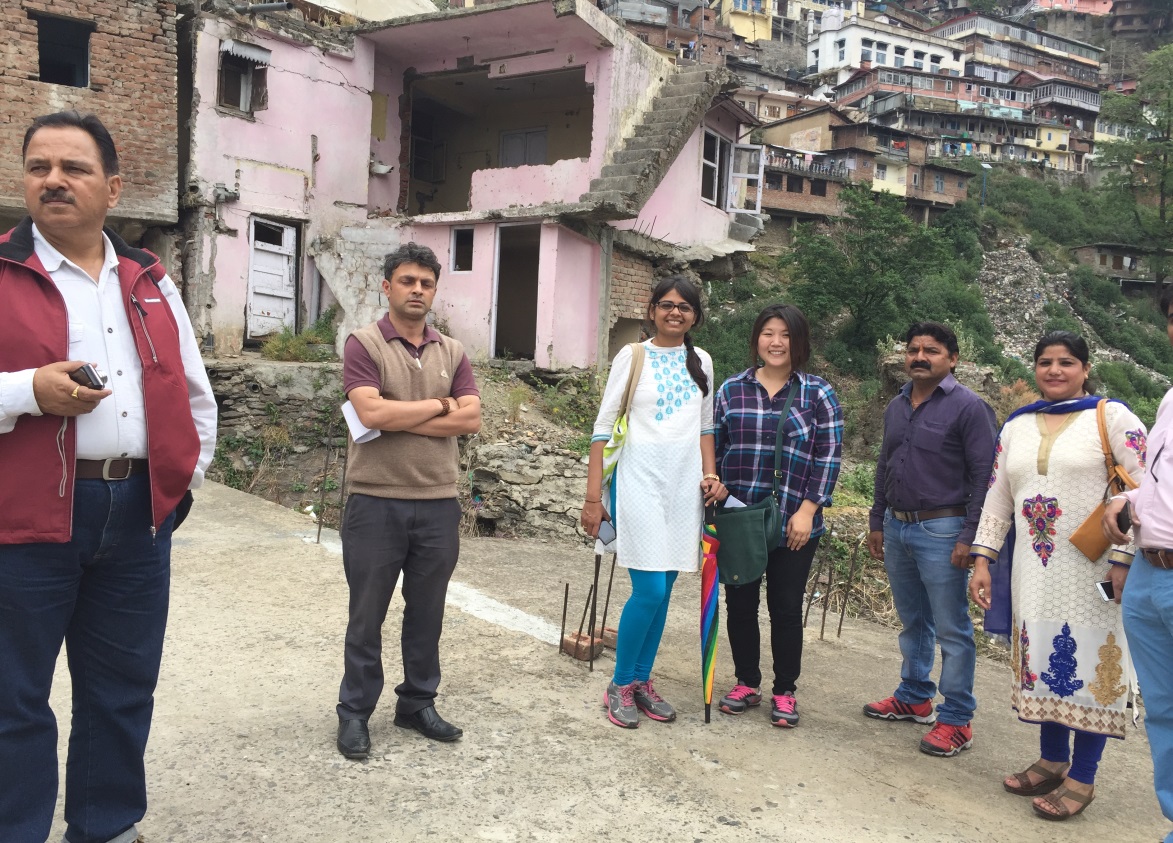
The first of three, this exchange trip was aimed at acquainting the representatives from Boulder with challenges faced by Shimla and laying the groundwork for the partnership. The weeklong agenda, filled with a variety of workshops and site visits, reflected Shimla’s belief in the cross-sector relevance of climate change.
The first day was spent in a day-long, multi-stakeholder workshop, hosted by Shimla’s Municipal Corporation at city hall. Topics included an overview of the urban development scenario in Shimla, current conditions of the water supply and sewerage/solid waste management systems, and an in-depth discussion on climate change impacts on various parts of the city. For some workshop participants, it was the first time they had ever jointly discussed shared issues, especially between state and municipal departments.
“It was amazing to see the level of leadership shown by climate change and the value placed upon capacity building from both a governance and technical perspective,” commented program manager Josephine Lee.
The following days were spent visiting sites that illuminated Shimla’s various challenges in the water and sanitation sectors. Among these sites were Shimla’s largest sewerage treatment plant, its oldest water supply system, and Ashwani Khad, one of the five water points providing water to Shimla.
As Shimla sits on the hills, most of its water supply points are located below in the valley, requiring water to be pumped up for distribution. The Municipal Corporation manages distribution (releasing water connections, reading of water meters, collection of water charges, attending public grievances) while the State Irrigation and Public Health Department manages the supply and quality of the water (sourcing the water, treatment of water, and transmission of water through raising and gravity mains to storage reservoirs). The river that feeds into Ashwani Khad faces major cross contamination with sewage, especially when heavy rainfall occurs. The buildup of debris often creates blockages leading to water shortages.
Shimla’s hilly terrain also impacts waste collection practices. Most of the housing sits on slopes and there are not many central roads. Because of this, waste collection is done by a combination of door-to-door garbage collectors and truck use. Collectors must carry trash from their designated neighborhoods to the main roads for garbage collection by the trucks. This system is managed by the Shimla Environment, Heritage Conservation, and Beautification Society.
Another issue Shimla faces is the growth of slums brought on by rapid urbanization. Krishna Nagar, the largest slum in Shimla, has become a permanent community with strong political influence. It comprised of a floating population as well as community members who have spent generations there. The homes there are located on either forest land or in sinking zones and other similarly hazardous areas. These structures face major threats to their stability, especially due to natural disasters. Krishna Nagar also faces issues of sanitation control, water quality, water blockages, and flood control.
The final day was spent establishing priorities and drafting a work plan for the life of the partnership. The teams will remain in close contact with this exchange and the next as they work to solidify the work plan and secure necessary data and information.
To learn more about the CityLinks program, visit the CityLinks website, follow us on Twitter at @ICMACityLinks, like us on Facebook, and join the climate change discussion in the Climate Preparedness, Adaptation, and Resilience group on the Knowledge Network.
New, Reduced Membership Dues
A new, reduced dues rate is available for CAOs/ACAOs, along with additional discounts for those in smaller communities, has been implemented. Learn more and be sure to join or renew today!
